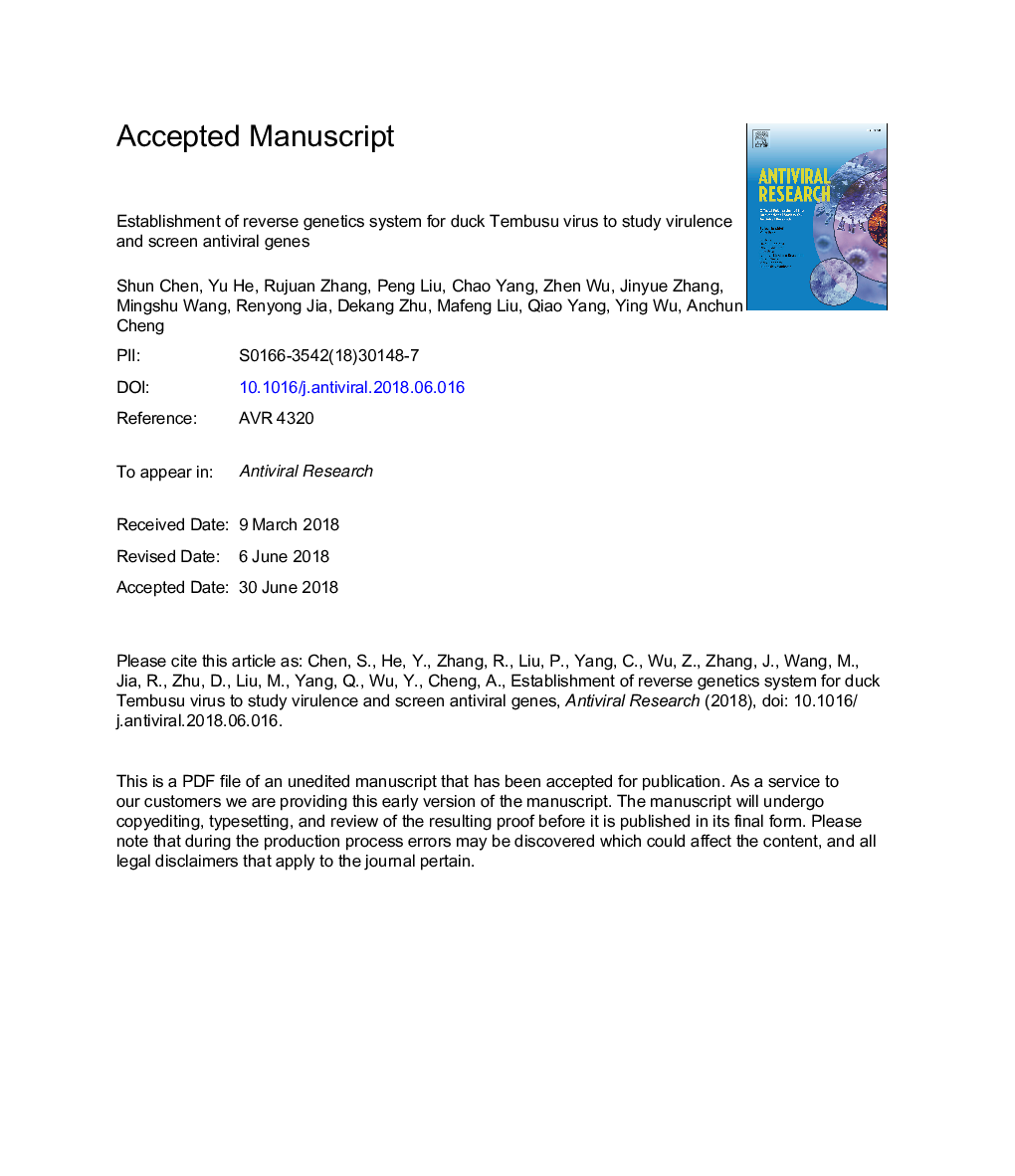| Article ID | Journal | Published Year | Pages | File Type |
|---|---|---|---|---|
| 8523023 | Antiviral Research | 2018 | 25 Pages |
Abstract
Recently, a newly emerged avian flavivirus, duck Tembusu virus (TMUV), was identified as the causative agent of a serious duck viral disease in Asia. Its rapid spread and expanded host range have raised substantial concerns regarding its potential threat to non-avian hosts, including humans. In this study, we report an infectious cDNA clone for a clinical strain CQW1 isolated from Southwest China, which is representative of the disease outbreak in the Chinese mainland. We generated a full-length cDNA clone pACYC FL-TMUV, which is infectious, and this cDNA clone-derived recombinant TMUV (rTMUV) showed comparative growth kinetics in both BHK21â¯cells and DEF cells compared with parental TMUV (pTMUV). In addition, rTMUV also showed the same high virulence in 9-day-old duck embryos as that in pTMUV, suggesting that rTMUV possessed similar properties to the natural virus both in vitro and in vivo. Based on the cDNA-clone, we first generated a reporter TMUV (TMUV-RLuc) carrying a Renilla luciferase (RLuc) gene. The luciferase kinetics of TMUV-RLuc were determined both in BHK21 and DEF cells. It seems that TMUV-RLuc grew well in vitro; however, the insertion of the RLuc gene attenuated viral replication in vitro. The higher viral titres of TMUV-RLuc were observed in BHK21 compared with that in DEF cells. The antiviral effects of exogenous-expressed duck RIG-I, MDA5, STING, MAVS, TBK1, IFNα and IFNγ were studied in vitro by using TMUV-RLuc. Our reverse genetics system will provide a multicomponent platform for the pathogenesis study of duck TMUV and the development of molecular countermeasures against duck TMUV infection.
Related Topics
Life Sciences
Immunology and Microbiology
Virology
Authors
Shun Chen, Yu He, Rujuan Zhang, Peng Liu, Chao Yang, Zhen Wu, Jinyue Zhang, Mingshu Wang, Renyong Jia, Dekang Zhu, Mafeng Liu, Qiao Yang, Ying Wu, Anchun Cheng,
